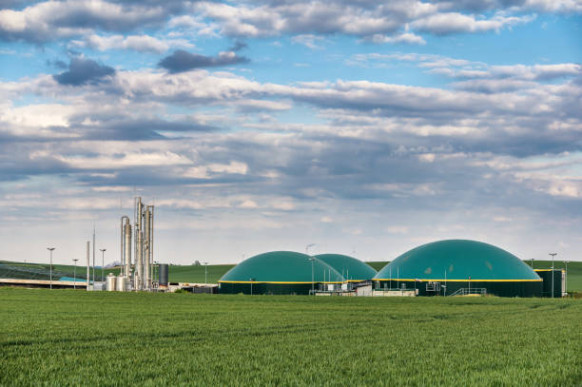- 5007
- 0
Sharing Ideas and Updates on LPG in Nigeria and related information to enable effective collaboration within the LPG Value Chain
RENEWABLE LPG - A Sustainable Energy Alternative?

Traditional Liquefied Petroleum Gas (LPG) as you know, has long been recognised as a sustainable fuel choice. However, a new contender has emerged - Renewable LPG or BioLPG. But what exactly is this innovation/fuel?
Renewable LPG is a form of LPG produced from sustainable sources, offering a more environmentally friendly alternative to conventional LPG, typically derived from fossil fuels.
It can be sourced from various materials:
Biopropane: This is typically derived from organic materials like biomass or waste. Through a process known as hydrotreatment, triglycerides from plants or animal fats are transformed into renewable LPG.
Bio-based Isobutane: Isobutane, a key component of LPG, can be produced from bio-based feedstocks such as sugar, starch, or cellulose.
Synthetic LPG: Produced by synthesizing gases like hydrogen and carbon dioxide or carbon monoxide, which can be sourced from renewable or captured industrial processes, reducing carbon emissions.
Renewable LPG stands out as a cleaner-burning fuel compared to conventional LPG since it does not rely on fossil fuels for production. It serves various purposes, including heating, cooking, and transportation, much like traditional LPG. Also, with renewable LPG, there is no need for new storage or logistics investment as it uses the same as LPG. However, if we verify other alternatives, it will be updated.
The adoption of Renewable LPG is on the rise in Europe, as it boasts the same chemical composition as LPG but carries a significantly lower carbon footprint due to its biological origin. Study from Atlantic Consulting (2018) indicate that the carbon footprint of Renewable LPG can be up to 94% lower than that of conventional LPG. Importantly, it seamlessly integrates into existing appliances and engines, requiring no modifications for end-users.
While the available renewable LPG production for the next few years is estimated to be around 250 tonnes in Europe specifically, experts believe that due to the abundance of cellulosics, the total availability of renewable LPG in Europe could reach 20-25 million tonnes per year in 2050, i.e. covering entirely the demand of LPG for energy use.
The majority of BioLPG on the market today results from the hydrotreatment of biological oils and fats, often as a byproduct of HVO biodiesel production. However, innovative production methods, such as fermenting glucose with microorganisms or combining atmospheric CO2 with renewable hydrogen, are being explored.
In the long term, renewable LPG's potential lies in advanced chemical processing of cellulosic materials and waste, like agricultural residues and organic municipal waste.
As for Africa, the feasibility of adopting renewable LPG hinges on several factors:
Renewable Resources: Success depends on the availability of renewable resources like biomass or organic waste, which varies across regions.
Technological Infrastructure: Investment in specialized equipment and technology for production, like hydrotreatment facilities, is crucial.
Investment: Attracting investment for infrastructure, distribution networks, and research is essential.
Energy Needs: Aligning renewable LPG supply with regional energy demands is key.
Regulatory Environment: Supportive policies and regulations are necessary to encourage investment and development.
Cost Competitiveness: Cost-effectiveness in comparison to other energy sources is vital.
Environmental Considerations: Environmental benefits, including reduced emissions, can influence its adoption.
With the right policies and support, Africa's LPG distribution chain could become fully decarbonized by 2050, a promising step towards a sustainable energy future.
Over to you dear readers. I always want to hear your thought on every subject discussed.
Do you think Renewable LPG is feasible or just a passing fad that will eventually die out?
















0 Comment.